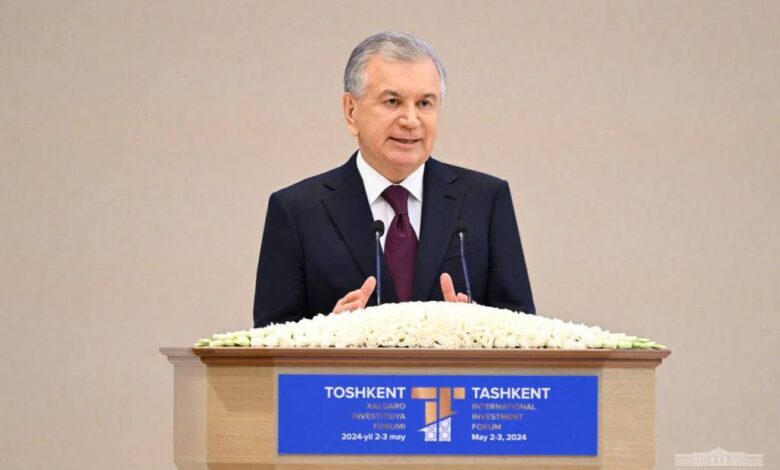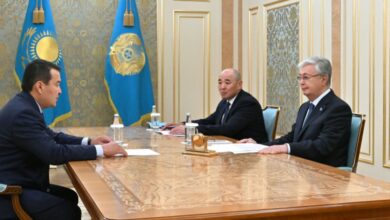Uzbekistan Targets 20 GW Renewable Energy Capacity by 2030, Invites Foreign Investment
President Shavkat Mirziyoyev of Uzbekistan has extended an invitation to foreign investors to engage in collaborative ventures, including the construction of hydroelectric power stations in neighboring Kyrgyzstan and Tajikistan, as well as the development of vital rail infrastructure projects connecting multiple countries.

Speaking at the III Tashkent International Investment Forum, President Mirziyoyev outlined key areas for expanding cooperation with foreign investors, TuraNews.kz reports citing Gazeta.uz.
These encompass mineral extraction, banking and finance, and notably, the green energy sector. Uzbekistan aims to increase its renewable energy capacity to over 20 gigawatts by 2030, with a target of 40% renewable energy in its energy mix.
Acknowledging recent milestones, President Mirziyoyev highlighted collaborative efforts with international partners such as Masdar (UAE), Gezhouba, China Energy (China), and ACWA Power to launch large-scale wind and solar power projects, alongside initiatives for green hydrogen production.
Recall in mid-April, reports surfaced indicating Uzbekistan, Kazakhstan, and Kyrgyzstan’s collaboration to establish a joint company aimed at constructing the Kambarata hydroelectric power station on the Naryn River. Upon completion of this estimated $5-6 billion project, the shares and assets of the station will be transferred to Kyrgyzstan. Additionally, construction commenced in June 2022 on the 140 MW Yavan hydroelectric power station situated on the Zarafshan River in Tajikistan.
President Mirziyoyev emphasized the role of public-private partnerships and foreign direct investment in driving these initiatives forward.
In addition to energy, Uzbekistan’s agenda includes digital transformation, with plans to expand IT services export and create 100,000 jobs through the growth of its IT park. The establishment of an International Center for Digital Technologies, in collaboration with Data Volt of Saudi Arabia, aims to accelerate Uzbekistan’s transition to a digital economy.
Transport infrastructure development also remains a priority, with opportunities for investors in airport development and railway construction projects. The ambitious China-Kyrgyzstan-Uzbekistan and Uzbekistan-Afghanistan-Pakistan railway projects are expected to transform Central Asia into a global transit hub, facilitating connectivity across multiple regions.
President Mirziyoyev concluded by reaffirming Uzbekistan’s commitment to fostering a fair, secular, and dynamic state, offering unwavering support to investors in realizing shared initiatives and projects.



